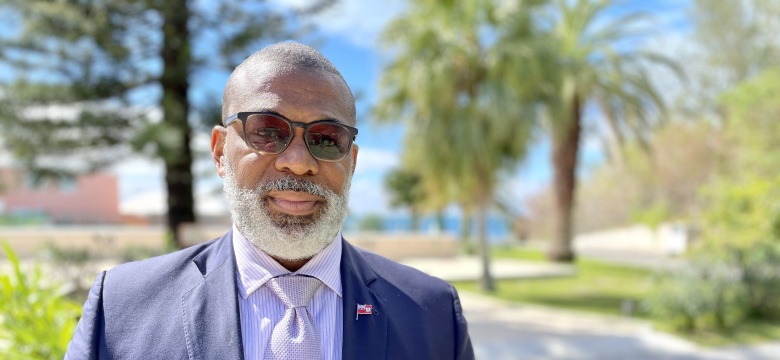
On Thursday, (May 27, 2021), Minister of Home Affairs, the Hon. Walter Roban, JP MP joined key regional stakeholders in discussions at the Meeting with Caricom Ministers Responsible for Energy, Heads of International Financial Institutions, Bilateral Development Partners, and the Private Sector, which included over 150 participants from more than 17 countries. The meeting was held to introduce a plan to galvanize the region in overcoming the barriers it faces toward a resilient, greener, and lower-cost energy future. Topics of discussion ranged from rural electrification to modernized grids to electrified transportation.
The discussion included the detailing of a technical and investment proposal for the region in the amount of US 5.4 billion dollars that would cover areas from low carbon electricity generation, storage, microgrids to clean transport.
It is accepted that clean reliable and affordable energy services which are predictable in pricing and supply are indispensable to the economic transformation of the region. Electricity costs are persistently high on average and five times higher than in North America. Increases in oil prices reduce competitiveness in a variety of industries. The increase in real oil prices reduces real Gross Domestic Product.
There are many funding organizations even outside of the Caribbean that are poised to invest in energy projects throughout the region. Bermuda, as an associate member of Caricom, cannot participate fully in most of these, but there is some pride to be taken in the advances made thus far. Unlike many of our Caribbean neighbours, Bermuda has a robust regulatory regime, an independent regulator, and a realistic road map to a renewable future, namely the Integrated Resource Plan published by the RA in 2019.
The meeting was the commencement of an important step for the region, a united approach to developing awareness of energy efficiency and conservation among the people of the region, of ensuring that infrastructure is sufficiently modern to accept more renewable energy and ensuring good governance of the energy sector through agile and appropriate legislation and regulation, and all in the context of resiliency.
Minister Roban stated: "Resilience remained a focus in this meeting, as we have witnessed severe weather events in the region that can wipe out the annual GDP of an entire country. It is a sobering reality for anyone in the historic path of hurricanes that we must be prepared and reflecting on this we should take notice that we have already seen our first named storm, several weeks ahead of the 'official’ start of hurricane season.
We have the same challenges as the rest of the region does, mainly in the lack of land area. Anything we do, anything we develop on a large scale will likely have to be located in our nearshore environment.
There was much focus on de-risking renewable energy developments before they go to market- which is exactly what we did with the solar farm on the ‘Finger’. De-risking means leaving fewer open questions, fewer elements left to chance when a project goes to market.
For example, we gave data on the ground conditions of the site, we indemnified the developer in the event something was found like disused fuel lines, and we determined the point of injection to the grid in advance, and all of that contributed to a low kilowatt-hour price from the developer.
Ultimately, we hope to learn from our Caribbean colleagues, and we hope to be able to exemplify best practices and assist how we can with Caricom’s important work in this new, joined-up initiative."
